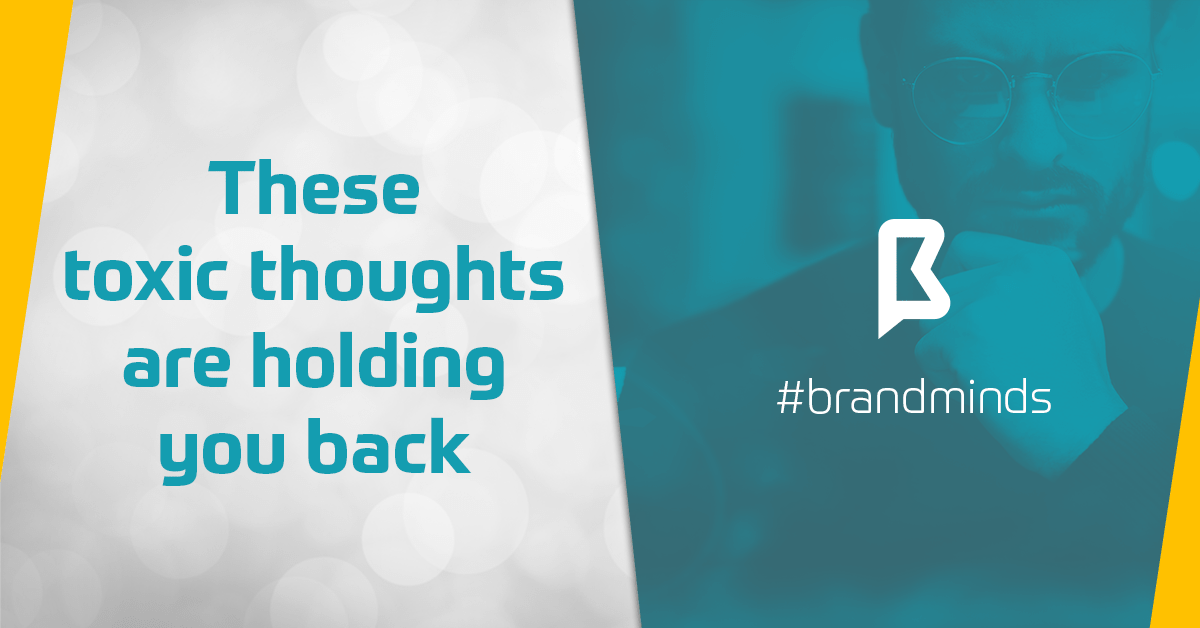These Toxic Thoughts are Holding you Back

We all have toxic thoughts, but you need to acknowledge when these thoughts are holding you back.
How toxic thoughts are holding you back:
- They discourage you;
- They cause you to miss opportunities;
- They leave you paralyzed and unwilling to take action on something that you wanted to do;
- They make you afraid even to try.
Are you thinking these 4 toxic thoughts?
1. Struggling to be perfect and beating yourself up when you don’t achieve it
Today I do the best I know and be the best I can be in every situation and I aim for progress instead of perfection. I have learned to embrace my mistakes as much-needed opportunities for growth. I know am not a Superwoman and that we all have good and bad days.
Sara Fabian, Woman Empowerment Professional Coach
Super Woman is fighting to bring peace to the world. She is beautiful, has immense physical strength and leads from her heart. One could argue she is perfect. But let’s remember she is not a real person, but a mythical character. Why do we forget this relevant detail?!
Why do women aspire to be perfect, a real Super Woman?
Your drive for perfection comes from the intimate belief, acquired or imposed on you, that being perfect will make you worthy of love, attention, acknowledgement, appreciation etc. It’s a trap most of us fall into.
The perfect wife, mother, daughter, manager, employee, attending to everyone’s needs, but your own, trying to do everything 24 hours a day.
What are the consequences of struggling to be perfect?
When you don’t meet your standard of perfection, you feel bad and turn to self-bullying and self-abuse. You tell yourself you failed therefore you are failure, you are nothing, stupid and worthless.
Our society is fighting against bullying in schools and abuse is criminal so why is it acceptable to inflict them upon ourselves?
After self-abuse comes mental and physical exhaustion, frustration, sleep deprivation, diabetes, heart problems and much more.
Perfectionism is a vicious circle: hard to break but not impossible.
2. Should statements
I should be a better manager
I should have been married by now
My child should go to a better school
[bctt tweet=”Should statements is what we tell ourselves when our reality doesn’t live up to our expectations.” username=”brand_minds”]
You play a fantasy movie in your head and then you get frustrated, angry and sad when it doesn’t come true. Psychologists say that should statements are a type of distorted thinking that occurs when something doesn’t turn up the way we expected. Instead of accepting reality on its own terms, we demand that reality conform to our terms, wishes and expectations.
Here is what Melody Wilding, Coach and licensed social worker says about should statements:
Instead of focusing on how best to handle situations for what they are, you demand they turn out as hoped. These “should statements” directed against yourself lead to guilt and frustration, such as “I’m an adult. I should have figured out my passion by now.” When directed against other people, they lead to anger and resentment. “My team should be able to handle this without bothering me,” is a good example.
3. What if….?
What if my in-laws don’t like me
What if I won’t be a good mother
What if something goes wrong
When you say or do anything to please, get, keep, influence or control anyone or anything, fear is the cause and pain is the result.
Byron Katie
[bctt tweet=”What if thoughts reflect our fears: fear of imperfection, fear of failure, fear of being rejected, fear of what others think, fear of losing control, fear of what might happen in the future.” username=”brand_minds”]
How to let go of your fears:
- You are in control and responsible for your words, choices and reactions, but you cannot control how others react;
- You don’t have a magic globe where you can see the future and neither can you predict it. So why try to control something that is not in your power to control?
- You don’t need to please others to feel loved and accepted; look for approval, affirmation and acceptance within, not the outside world.
4. All or nothing
I mess everything up
I’ll never figure this out
I’ll never be a lawyer
I always do/say the wrong thing
You see things in black and white. If your boss says you did not meet expectations in a single category on your performance review, you label yourself as a “complete failure” at your job.
Melody Wilding, Coach and licensed social worker
Life is not black or white, all or nothing. Living your life in one extreme or the other is dangerous and a source of pain and frustration.
Katie Byron has found a way to help people change this mindset by having them answer these 4 questions:
Is it true?
Can you absolutely know it’s true?
How do you react – what happens – when you believe that thought?
Who would you be without that thought?
These questions help you break the emotional barrier that is keeping you from seeing the reality.
And when that happens, you feel liberated and free of pain and frustration.